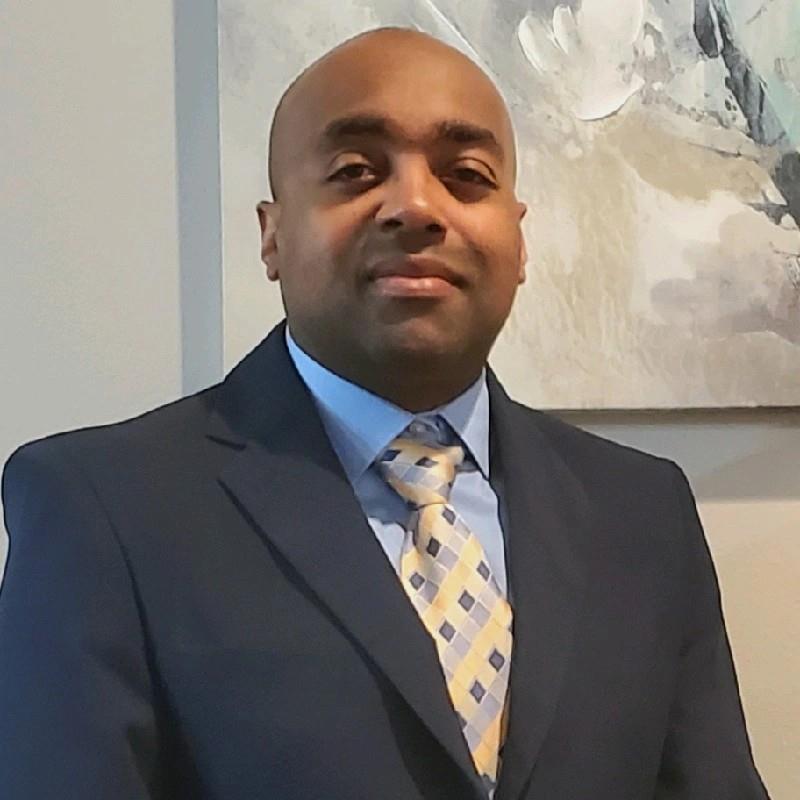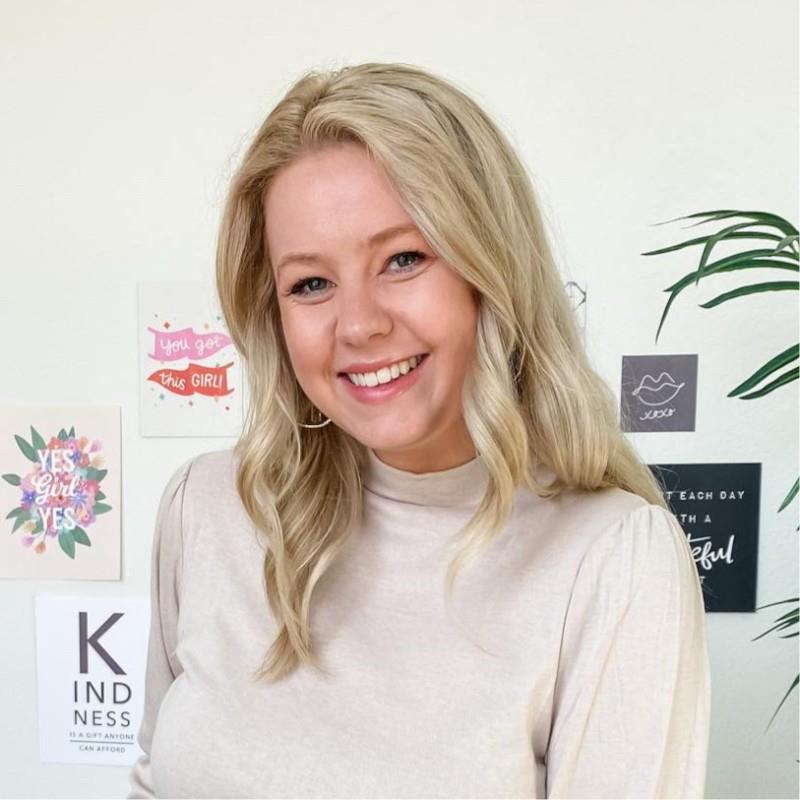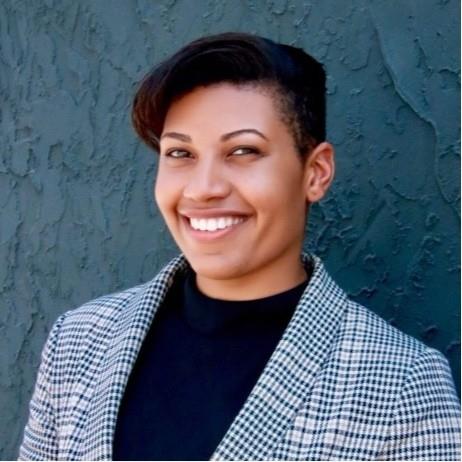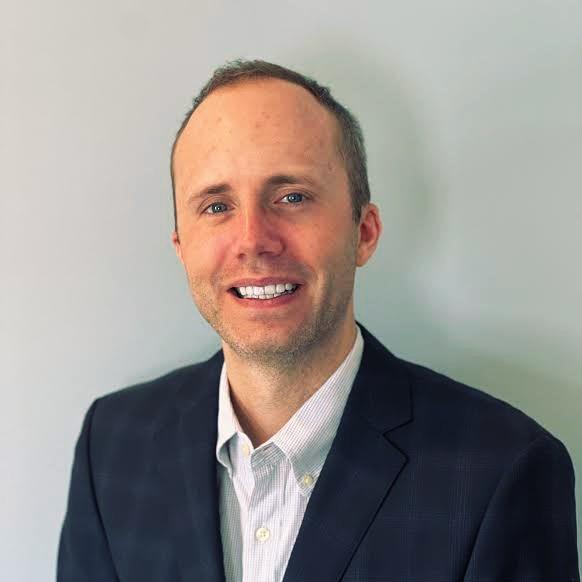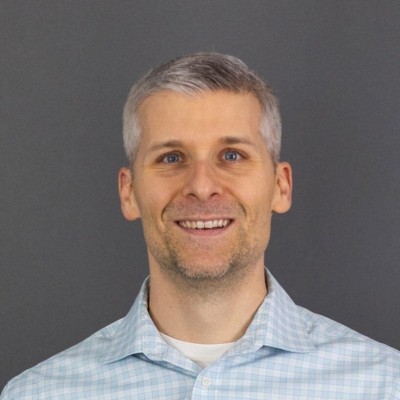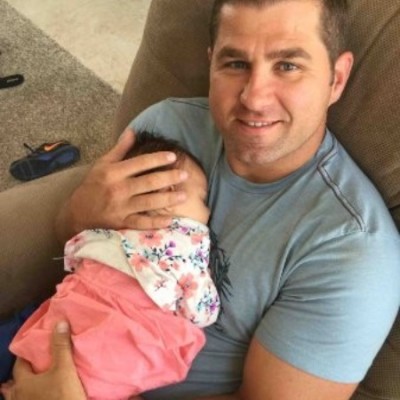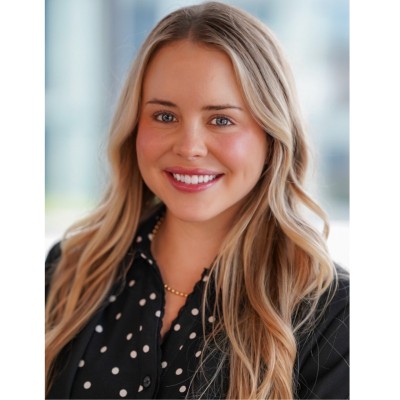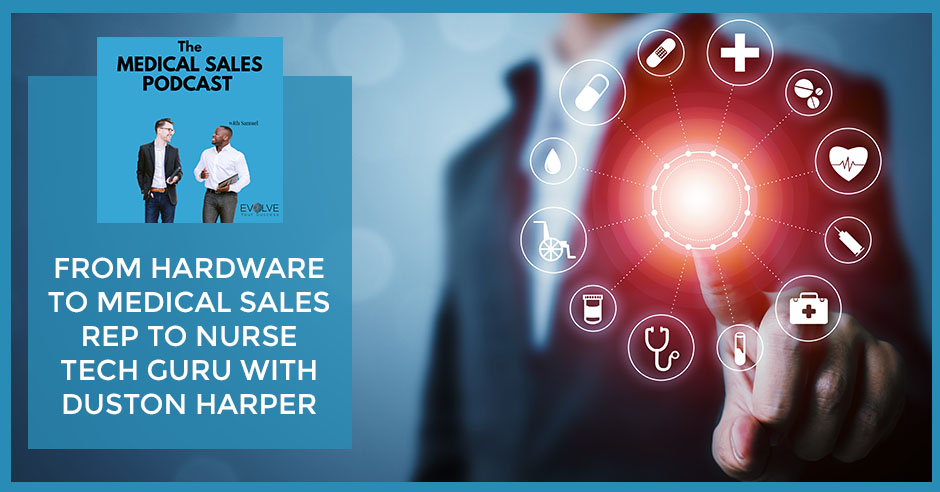
Put yourself out there. That’s the key to achieving your goals and succeeding in your preferred industry. You can always work on a routine to help you develop the right mindset for continuous growth. Tune into this episode as Samuel Gbadebo as he sits down for a conversation with Nurse Tech Guru Duston Harper about making nurses’ lives easier and safer by helping hospital administration solve problems. Duston shares in-depth insights on the unique space he’s in and how he transitioned all his experience into the role he’s taking on today. He also explains different aspects of the power of social media in sales, implementing things, and presenting yourself on platforms. If you’re interested in pursuing a career in this industry, listen to this interview to help you make that decision to help other people’s lives and learn tips.
—
Watch the episode here
Listen to the podcast here
From Hardware To Medical Sales Rep To Nurse Tech Guru With Duston Harper
In this episode, we have with us a very special guest that goes by the name of Duston Harper. His story is interesting because he worked with us here and grew his social media brand through one of our programs. When I met him, he was demonstrating success as a medical sales rep and now, he works for a staffing technology company with an extremely bright future and a whole new level of opportunities in front of him. He started in hardware sales, and then in his position now but I’m not going to sit here and give you all the details because I would be spoiling the interview. I’m going to save that for the interview. I’m glad to be able to share his story, be a part of it and bring it to you as our audience.
If you are someone that wants to get into the industry, this is an episode for you. If you are someone that wants to do more within your position as a medical sales rep and thinking, where can you take the rest of your career? This is an episode for you. If you are someone that wants to grow their brand on social media, whether you are a sales rep or a leader and thinking about, “I want to grow my brand. I’ve demonstrated success. I want to share more of my expertise. I want to reach an audience or I even want to reach more customers,” then you would want to read this episode and learn from Duston Harper. As always, we do our best to bring you innovative guests that have fascinating contributions to the medical sales space and I do hope you enjoy this interview.
—
Duston, how are we doing?
I’m doing well, Samuel. I’m glad to be here.
I’m glad that you are here. You are a fun guest to have because we’ve worked together and you’ve experienced quite a bit in the time that we have been together but I’m not going to spoil it for the audience. I want them to learn it from you. Why don’t you tell the audience who you are and what you do?
Duston Harper here. I grew up in the Midwest, in Ohio. I moved down to Georgia for college and stayed in the Southeast ever since. I work at a local company here in Atlanta, Georgia. Both of the founders have a clinical background and basically what they were doing was trying to solve some of the problems with healthcare staffing. Years ago, people would still be faxing over resumes and it’s a very clunky process that has a lot of gaps in it.
They were trying to bring technology to make it faster, to connect hospitals and nurses, the right nurse, the right specialty, the right place, and the right time. It’s almost like an Airbnb-type platform that connects hospitals and nurses very quickly. There’s a short-term and long-term aspect to it and there are also ways that help the nurses and the hospitals.
The million-dollar question I have is, what attracted you to this company and what were you doing before you got into this?
Out of college, I’ve actually worked in power tools for almost a decade. I was with a tool company and had a great run there. It was an awesome company. I was able to work with a lot of places like that. I hit a plateau and wanted to change. One of my friends worked at a medical device company and one thing led to another. I went to this company back in 2019, which was interesting timing with the pandemic happening soon thereafter but I had another awesome experience with this company. I learned medical devices. I feel like I got 10 years of experience in 3 years because of all the stuff going on with the pandemic.
[bctt tweet=”To succeed in sales, process and consistency are the two main things. You can’t just do it when you want to. You have to be consistent and you have to have a process behind it.” username=””]
What exactly was the role there? What were you doing?
I was in the medical division. I was focused on infection prevention and safe patient handling. Products that would help nurses not get injured, moving patients around, or things that would help patients not get an infection like pneumonia once they were in the hospital. It was very nurse-driven, which is unique because you usually think of very surgeon-focused. I wasn’t in the OR or anything. I was more like the rest of the hospital and worked with nursing leadership, supply chain leadership, as well as other places like that.
You are working with nurses. Nurses were your call point or were it more healthcare administrators were your call point?
It was mixed for sure. I feel like anything in healthcare these days, you have to go to multiple call points but it was very nurse-driven. I would say more than half and then you also have administration and then supply chain because you are dealing with physical products. There is certainly a clinical and a business side to it but I was in front of nurses every day, whether that be as an end-user nurse on a unit or a chief nursing officer or a nursing director. It was pretty diverse and I would help out with implementations, trials, and things of that nature.
What turned you want to work for this company? How did you even find out there was a company that helps with healthcare staffing?
A lot of the conversations I was having were related to staffing because every time you were in a hospital, you would hear and see all the issues with ratios, people being understaffed, and all these urgent issues that were coming up. It was hard to get anything done a lot of times because of all of that. I started hearing more and more about staffing. I became more knowledgeable about it. I heard some people talk about this company because it was local in Atlanta. I looked it up and saw some articles about some of the growth and I was like, “This is a cool story. It’s in Atlanta. The founders are clinicians. They seem to be very nurse-focused.” From there, it started growing with that interest.
You were in a medical device company for three years and before that, were you in hardware sales?

Yep. It’s power tool sales. It’s red and black drills and all kinds of different products. I was in power tools for almost a decade.
Was that a store-based position or were you door-to-door? What did that position look like?
I had several different roles. I was lucky to have seven roles over the time I was there. Everything from selling to a consumer to working with more strategic accounts. I had a variety of different roles as that company was growing but it was mainly B2B for the most part a small business associate.
You transitioned all that experience into your medical sales role at this one company. You got this focus on nurses, then you started seeing that there’s an issue here and more work needs to be done in the space of contributing to the staffing of nurses because of the shortage you were noticing. That brought you into opportunities with the company that you are working for now and here you are. What exactly is your current role? What’s your day-to-day?
I’m continuing to learn and grow but I’m focused on business development and sales, specifically in Atlanta and Georgia is trying to build the brand up. Hopefully, help a lot of providers and hospitals locally, as well as the nurses. I’m trying to grow the brand, get into new accounts and grow our existing business. We are a growing company so there are a lot of new avenues that we potentially could take. There are a lot of newer opportunities and staffing changes weekly, in a lot of cases. We are always open to new ideas and partnerships. I’m looking at things like that as well.
One thing that excites me about this episode and having you on Duston, is something that I believe in and that I’ve seen work for so many people that we do as a company is the power of social media. I had a guest and we talked about it. You and I have a lot to talk about it but I don’t want to spoil it again. I want the people to know it from you. Why don’t you let the audience know how you and I met and what we experienced together?
I will give you a little bit of props. A couple of years ago, I started tuning in to your show. I got interested in that when I was in medical device sales. I started to read a lot about your show and guests. At some point, we connected through that and had a one-on-one conversation. What we talked about was growing your personal brand and I would always like LinkedIn. I would be on there liking stuff but I never actually posted anything.
[bctt tweet=”You don’t have to be an expert to be a great salesperson. You just need to be interested in what people care about and you have to be willing to dive into their biggest problems. ” username=””]
I was always like, “I have some pretty good stuff I could talk about but I didn’t have a process or anything behind it.” When you and I chatted, we talked more about it. You offered a program that focuses on personal branding, LinkedIn, and some other things. It was out of my comfort zone getting into coaching but it was something I took a chance on and it honestly worked out phenomenally as we talk about this story. Your program was a big part of where I’m at now. Thank you for that.
This is something that we do. Thank you for working with us but I want to get into what you truly experienced. What was your journey like before you started implementing some of the things we would discuss and then what did you start to see that changed the way you presented yourself on the platform?
The first thing that stands out is to put yourself out there, you have to have the right mindset and that’s a big part of it. You and I worked on that morning routine and different things of that nature that puts you in the right state of mind because you are posting stuff and putting yourself out there, you are always constantly thinking about what other people think. A lot of people don’t post anything because they are worried about what other people think.
I would give you some credit there because the mindset thing is something that I’ve latched onto after the fact, which has helped in a variety of areas. That’s number one. Number two is LinkedIn or whatever platform. You have to have a process and a program for it. You can’t just do it when you want to. You have to be consistent and have a process behind it. That’s not easy. It takes some time to get into that but a lot of the things that we talked about, I’m still doing now consistently. The process and consistency were another cool things that you provide them with.
I talk to a lot of reps, managers, and business owners in the medical space. Some of them are very savvy and they are like, “I’m paying attention. I’m seeing the power of social media.” Others are like, “I don’t know about social media.” Some people say it works but I don’t think it does.” Talk to the audience a little bit about what opportunities can be created through that platform. You can speak to things that you’ve experienced directly and things that you’ve seen. If you were to talk to a stranger and say, “Let me tell you why it behooves you to even think about getting on the platform and starting to get active.” What would you say they could be exposed to or could experience?
These days you have to be different. The same thing is going on if you are a salesperson talking to a medical provider so these administrators get hit up all the time with pitch after pitch and they can’t get away from it. Unfortunately, some people ruin it for everybody. If you are not different, you are going to fall into the same bucket as everybody else. LinkedIn is a great way to be different.
The second thing is that I’ve had many customer relationships built up over time purely from LinkedIn because it builds up that know, like, and trust. By the time you meet somebody in person and you have been interacting on LinkedIn, you are already friends with them. I have several examples of accounts and people that I’m good friends with that purely started from LinkedIn and probably for months was just LinkedIn before I met them in person.

The last thing and this just naturally happens, is all the stuff we worked on with my focus on LinkedIn. If I would have not done that, I would not have gotten connected with the company I’m working for now because a lot of that happened purely from LinkedIn. From your career and personal branding standpoint, a way to stand out and be different, it’s a no-brainer. If you look 5 or 7 years from now, what that sales rep will look like, if you are not doing this now, you are going to be light years behind.
We talked about it and there are a lot of people out there that want to get active but they are scared. As you said, they are scared of what people think. They are scared they have nothing to offer. They are scared they don’t know enough in their industry to be considered an expert in any capacity. What would you say to people that have that sentiment?
I don’t think you have to be an expert. That was something at the beginning I was worried about too being a subject matter expert but the reality is I’m never going to know as much as the clinicians anyway because I don’t have that type of background. You want to be more of a peer. Do you want to be interested in what they care about and what are their biggest problems? What associations are they a part of? If you become like-minded like that and you become thought of as more of like a peer and not just a salesperson that is step number from my standpoint.
Let’s take it back to the company that you are working for now. How are you utilizing social media to promote what you are doing in your work and what are you doing to position yourself as a resource?
Try to post a few times a week. You never want to be selling on LinkedIn, which I know that’s something that we talked about too but you are more talking about problems. You are talking about situations, you are trying to get feedback or give good tips and tricks. Consistently try to post. I also have a lot of people that are maybe influencers or targets that I try to collaborate with, like and comment where I can, and be involved in those discussions when I see them.
I also started to do stuff where I’m on podcasts, whether it be sales-related, healthcare-related or nursing-related. I’m trying to continue to ingrain myself in that community. Luckily, I’ve had opportunities to do stuff like this so it has been fun. I will continue to ramp that up and maybe some more videos but other than that, that’s probably the main few things.
Is there anything you would like to share about the company that you are working for now? I don’t know what you are at liberty to say,= but maybe some things you’re working on or doing. Please, let the audience know.
[bctt tweet=”Be a peer to your customers, not just a salesperson.” username=””]
From a nurse’s standpoint, how it can help a nurse or other clinicians. We do other clinicians to is it gives them that flexibility. You hear flexibility a lot in the workforce. Now, healthcare is behind that compared to other areas. Not everyone wants to work 4 or 5 days in a row at the same place or not everyone wants to work for five years at the same hospital. We can give you that flexibility where you can maybe pick up some shifts at other places. Also, you have the opportunity to get paid the same day. If you are going to work a shift, you can get paid right afterward, which is a big benefit. People might be working paycheck to paycheck or living paycheck to paycheck. That’s cool and then it’s also become a community in itself.
We have over 350,000 clinicians and nurses on the platform throughout the country. It’s become a community in itself where people will go on assignments together and become friends from it. It’s continuing to grow. From a hospital standpoint, if we can save them time and money dealing with staffing, that’s a great thing.
We also try to partner with the hospitals to give them more flexibility with their internal staffing and provide those resources when somebody calls out that they can use us as an option, which could prevent burnout and help retention with their internal staff. We look at it from both sides like helping the nurse or the clinician and then also helping the provider be more flexible and saving them time. That’s the main thing I would want to point out.
One thing that is so cool is in the show, we focus on the medical sales space and people don’t think enough of not only how beautiful it is to be in the actual work of medical sales but the opportunities medical sales can lead you to. I know that you probably had to do a lot of deliberation to take yourself from medical sales into your work now. I would like to believe that there are probably a lot of people out there that have thought the same thing. They’ve seen an opportunity or a need and they want to step into it. What allowed you to say, “I am going to now step into this need that I can see and explore and be a part of the solution. Step out of the traditional role in medical sales.”
It was not an easy decision that I made because it’s a great company and I had an awesome experience there. Things were going well, quite frankly. Typically, that’s not when people are looking at other stuff but sometimes you might be more attractive when things are going well. Maybe that’s how it worked out but I would definitely make sure that the morals and that factor are there for you.
If you are going to explore something, the whole nurse connection for me was what drew me in and some of the growth that they had. You got to look at that. You want to weigh the pros and cons of leaving a medical device or whatever it may be to go somewhere else because it does take a lot of time to build up in a medical device so walking away from that can be tough but if you are going to do it, you got to do it the right way.
I also think of like, “How many chances are you going to be able to do something like this? The company that I’m working for now is very unique from my standpoint. It wasn’t just another job to me. I was like, “If I look back ten years from now, would I regret not taking this chance and decision?” I thought that it made sense. I would probably look at those few things before you make a major decision but certainly, it was not an easy one but I’m really happy where I’m at and what I’m doing now.

Another thing I wanted to highlight is you were in a very unique space within this company which is also in medical sales. Talk to us a little bit about how vast the medical sales arena is. A lot of people look at it as OR-based rules or pharmaceutical sales and you and I both know that it’s so much larger than that. Tell us a little bit about the different fields there are within the medical device sales that people that are interested in getting in should be thinking about.
People just assume you can walk right in but they don’t realize the gauntlet process to get in and how many specialties there are. That’s still overwhelming to anybody. I still learn about new things all the time, as far as what specialties you can get into but you want to do your research. Not every specialty can be the same. For an OR-type job, you are going to be working cases.
You could have weird hours and different schedules. That’s a high-pressure situation being in surgeries with surgeons. That’s not for everybody. You have capital equipment with beds and stretchers where maybe you are only getting sales once a year in some cases and it could be dormant because of how big of purchases they are.
What I was doing was disposables, which can be viewed as a commodity. You have that type of hurdle to get over and then there’s a lot of other stuff in between. Courses like yourself help people. It might seem foreign to do something like that but it’s hard to break in with these companies. Typically, the interview process is 60 to 90 days and 7 to 8 rounds of interviews, at least from what I experienced.
Services like yourself or connecting with people like me to get feedback, you have to do that. You have to network and understand the day-to-day. Go shadow with people to see what it is but do your homework and don’t just jump on any opportunity that comes up because it varies depending on your personality, the company, and type of specialty.
Talking about disposables and considering that you came from a different industry. You had a number of different roles in the hardware industry and you took it into disposables. For anyone out there that’s thinking about medical sales, if disposables might be a good fit for them, what things should they be looking for to see if disposables could potentially be a good fit for them?
The better thing about disposables is you can make your own schedule versus being on call with the OR and the surgery schedules. With disposables, typically you should be able to make your own schedule and work the hours you want to. You are still going to have to have some late nights and early mornings but that’s to be expected.
[bctt tweet=”Don’t be afraid to be different. Take risks. See how taking those can elevate your career and your life.” username=””]
Also, you need to have a good clinical and business understanding. A lot of people focus a ton on clinical, which makes sense and they rightfully should because you are impacting patients, nurses, and surgeons but you also have to have a good understanding of the business side. There have been all kinds of crazy supply chain issues over the last few years so if you don’t understand the business side of it, plan the right way, and be able to negotiate with supply chain and materials management, then it’s going to be tough for you.
It takes a long time to get anything done for disposables, especially if you are dealing with a system or IDN or a bigger project, it’s typically going to take at least six months to close something from start to finish and probably longer than that these days. You would have to be in it for the long haul and I feel that some of the other areas might be a little bit quicker but disposables from my experience was a much longer sales process, which doesn’t always match people’s personalities. Those would be the few things that stand out to me.
What kind of personality does it match then?
If you are looking for some transactional, quick-hitting type of sale, it’s not going to be the one for you. If you are looking at more relationship-building like having to deal with 10 or 15 people to close something and being almost like a project manager guiding it to the finish line, it’s going to be more for you. It’s more relationship-driven and longer-term. There are a lot of different business units involved from the supply chain, nursing, etc. That’s more of the type of people that tend to do well. I had experience with these like long processes. For me, it matched up pretty well because I already had that experience but if somebody else came from something different like a quicker sale, it could be a tougher transition to get used to.
One other thing I want to get into. One company is a big company and a global leader. They got a lot going on. The other one is a startup. Tell us a little bit about what it’s been like to transition from that type of environment to the startup environment.
It’s another thing I had to think about before making the transition. I’ve always historically worked for big companies so I think that was something I wanted to change up a little bit too. If you think of a bigger company, there are a lot of processes. There are a lot of people. Sometimes it takes longer to get things done and then there’s a great brand behind it too so you can always fall back on that awesome brand and everybody knows it. They think of medical equipment when they think of this company. There are a lot of awesome things behind it that can always back you up but it can take maybe a little bit longer to get things done or if you want to change stuff internally, you have to go through these longer processes and it’s not as quick.
With a smaller company, maybe the brand recognition isn’t there as much. That’s something I’m working on to try to build up in Atlanta and Georgia. There might not be as many processes because it’s growing fast but from my standpoint, that gives me an opportunity to try to help build those processes and give my perspective. You can try new ideas quickly and the people in a smaller company are probably more open to new ideas quickly, which can be cool because if you have something that works, you can pick up on it fast and other people can start trying it too. There are pros and cons to both sides but you have to be more patient with smaller companies because they are growing. There are more processes that will continue to get built out. They are adding more people so you have to be a little bit more patient from my standpoint.

Let me ask you this. When it comes to people who want to get into the industry, what message would you share with them now?
I would say, it’s not as glamorous as it may seem at first to get into medical devices and that’s something that people misunderstand at first. It’s a great industry, no doubt and I’m very glad that I was in it. I learned so much and still have a lot of great connections but you definitely have to put in the work. Depending on the territory you go into, it’s going to take at least 12 to 18 months to establish yourself and that can be a grind. If you are going to go do it be in it for the longer-term and make sure that you recognize that on the front end.
For those that are in the industry and maybe are looking to get a promotion or looking to excel in their current role and do more this year, what would you advise them?
I say, “Don’t be afraid to be different and take some risks.” All the times that I’ve had some elevation in my career life have been when I took a bigger risk. You want to have to weigh the pros and cons but every time that I’ve taken a risk, I’ve accelerated my career and other things in life. Definitely do that is what I would recommend.
For those that are reading that maybe they are in the industry. They have been in the news for a while or are leaders in the industry and now they want to develop a brand. They want to be more well-known as a resource to their colleagues and customers. How would you say is the best way to go about doing that?
First off, to give you some more props here, you have a phenomenal course. I highly recommended that one to anybody. If anyone has any questions, they can reach out to me directly. The second thing is you need to have a niche in something that’s different. You need to think about like, “What do I want to talk about? Who is my target audience? Who do I want to get in front of and build up over the next couple of years? The last is you need to have that giving mentality. Who are you trying to help? What are you trying to solve? Have that giving mentality and over time it should work out.
Considering when you started to get real traction, how long would you say that took?
You have to be consistent. You have to be doing this stuff daily or at least multiple times a week. I would say after about three months or so, I started to notice some traction whether that be connections, conversations, more exposure on posts or just accelerating. To me, it became fun. It was a good way to change it up. There’s a lot of negative stuff going on in healthcare sometimes. It is a good way to change it up and stay positive.
Duston, it has been amazing talking with you on the show. Is there anything else you would like to share with the audience?
No, it has been an awesome time. I appreciate it, Samuel. I look forward to continuing our relationship.
Thanks again, Duston.
—
That was Duston Harper. He is such an interesting guy with an interesting story. You got to look at Duston on LinkedIn. If you are by a computer or you have your phone, look him up and you will see. He’s become quite a brand and he shares a level of expertise that his customers and audience want to hear. He’s just continuing to soar.
If this is something that intrigues you at all, then you want to visit EvolveYourSuccess.com or reach out to him and ask him, “What has this experience been like,” and then come check us out on the website. Select Improve Sales Performance and look into our LinkedIn program. This show is created for people in the medical sales space and people that are interested in the medical sales space.
We have these guests to show you all that there are all sorts of lives to lead within this space, how vast it is, how many different fields there are, and how, regardless of your background, there are ways that you can get access to this industry and become a medical sales rep. Regardless of where you are in your position as a medical sales rep, there are ways that you can excel in your performance and experience success like you’ve never seen.
Even as a leader, there are ways to get your team exactly where you want them to be. We are called Evolve Your Success for a reason because no matter what level of success you are experiencing, it can always evolve and no matter what’s happening in the external environment, the medical sales space and healthcare technology are always evolving and pretty rapidly.
As long as you are a part of that, there’s always going to be an opportunity. If you are someone who wants to get into the industry, again, make sure you visit EvolveYourSuccess.com. Select Attain Medical Sales Role. Fill out the application, have a discussion with someone here, and let’s talk about a program that can change your life. If you are someone that’s in the industry, you are a medical sales rep and you’re wanting to improve your performance, you want some specific detailed, help some specific detailed tools that can transform the way you do things, again, visit our website and select Improve Sales Performance.
Lastly, if you are thinking about this social media, let me tell you. It’s not going away. It’s only going to grow. If you are thinking about growing your brand to either reach more customers, demonstrate a new level of expertise or even find a new opportunity, then again, visit our website, Improve Sales Performance and then select our LinkedIn Program and let’s have a discussion. As always, we are going to continue to do our best to bring you innovative guests that have the most wonderful contributions to medical sales so make sure you tune in for another episode of the show.
Important Links
- Duston Harper – LinkedIn
- Improve Sales Performance
- Attain Medical Sales Role
- LinkedIn Program
- [email protected]
- https://GetTheMeeting.Thinkific.com/courses/closing?ref=2f758e
About Duston Harper
 After an almost decade long career in Power Tool sales, it was time to make a change. I grew up seeing both my parents in healthcare, and knew it was something I could thrive in.
After an almost decade long career in Power Tool sales, it was time to make a change. I grew up seeing both my parents in healthcare, and knew it was something I could thrive in.
Finally in 2019, I decided to make the jump into a competitive med device industry at a leading company in Stryker. Despite the pandemic happening soon thereafter, I found success focused on making nurses lives easier, safer, and helping hospital administration solve problems.
Physically being on nursing units during the different COVID surges was eye-opening to say the least. That led me to be more passionate about being a positive influence and help nurses.
This landed me at SnapNurse which has built an incredible team and Atlanta story. The goal is to disrupt nurse workforce solutions for the better with a tech-enabled platform. SnapNurse can help hospitals fill gaps with quality nurses within 48 hours, save time and money with PRN technology platform, and provide long-term flexibility for all your workforce.
Outside of work, I enjoy staying active, yoga, and doing my morning routine. Weekends are for college football (Go Dawgs!), family, travel, and my real estate side hustle.
Always looking to connect with healthcare leaders/nurses/sales reps passionate about solving these problems above. 📌 DM me on Linkedin 📌 Email: [email protected] 📌 Cell: 770-313-8969 📌 Book 1:1 meeting above
If you want to understand the philosophies behind my success in sales, please reference this link and course: https://getthemeeting.thinkific.com/courses/closing?ref=2f758e
My Gallup Strengthsfinder Top 5 include: Achiever, Focus, Competition, Futuristic and Self-assurance.
Love the show? Subscribe, rate, review, and share!
Join the Medical Sales Podcast Community today:
